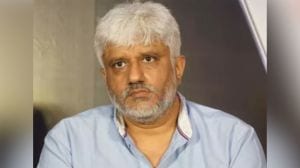Overhaul the EPF Act
The Employees Provident Fund Organisation EPFO board has accepted an 8.5 per cent rate of interest on the provident fund. It is a welcome ...

The Employees Provident Fund Organisation EPFO board has accepted an 8.5 per cent rate of interest on the provident fund. It is a welcome development that the board has accepted the inevitable and had not insisted on a subsidy. The EPF cannot pay out more interest than it earns. The interest rate on the Special Deposit Scheme SDS is 8 per cent and 80 per cent of the funds in the EPF are parked in the SDS. Market rates on government bonds are lower. The rate on SDS, therefore, already includes an element of subsidy. The new labour minister, K. Chandra Sekhar Rao, has said that he will ask for the rate to be raised to 9.5 per cent. But is even the subsidy implicit in the 8.5 per cent interest rate paid on provident fund justified on the grounds of redistribution? Does the subsidy go to the poor? No, the bulk of the subsidy goes to the affluent. The top 15 per cent of the accounts hold 85 per cent of the assets. This means that 85 percent of the subsidy goes to the rich. At the same time, 85 per cent of EPF members have a balance of less than Rs 30,000. Their average account balance is Rs 2,938. They receive 15 per cent of the total subsidy paid.
There are basic flaws in the Provident Fund scheme. The scheme should operate on accounting principles similar to the ones on which fund managers and mutual funds operate. To use incoming contributions to pay high interest rates, which are not sustainable, can lead to bigger and bigger holes. One day somebody would have to bear the brunt of this mismanagement. It could either be the employee who would lose his life-savings, or it could be the tax-payer who could have to bail out the EPFO. Interest rates should, therefore, depend on the performance of the asset portfolio.
The EPFO needs to be transformed into a fund manager working under a modern regulatory framework. There is a need to separate policy formulation, regulation and service provision. Policy making and governance of EPFO should be put into the hands of experts in finance and economics. The EPFO should come under the regulation of the new pension fund regulator, the Pension Funds Regulatory and Development Authority, exactly as UTI was brought under the regulation of the new SEBI. Overhauling the EPF Act of 1952 should be the main focus of the new minister.
- 01
- 02
- 03
- 04
- 05































